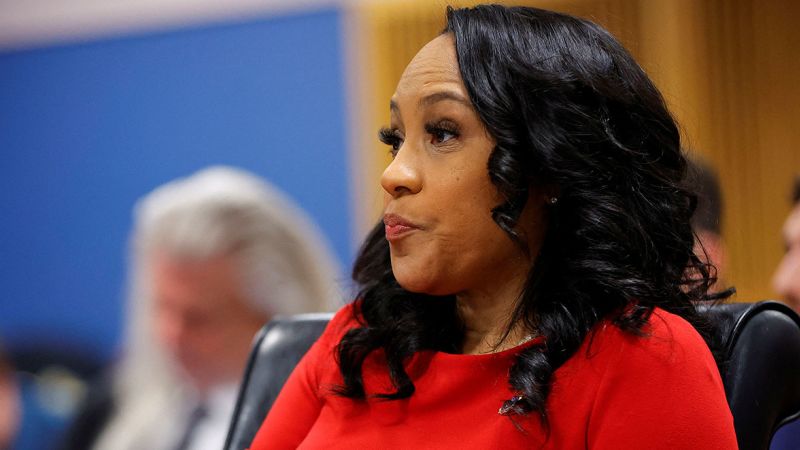Lawyers representing various defendants in the Georgia criminal case against former President Donald Trump and others are considering pushing for a gag order against Atlanta-area prosecutor Fani Willis, especially if their attempts to disqualify her from the case fail. Willis has been speaking publicly about the case, including references to race, despite being criticized by the presiding judge. While a gag order against Willis may benefit Trump and his co-defendants in the short term politically, it could also hinder their efforts to have her disqualified from the case.
Efforts to have the Georgia election subversion case dismissed have been unsuccessful, with the criminal indictment upheld by Fulton County Superior Court Judge Scott McAfee. Willis has continued to make public statements despite facing backlash, leading to discussions among defense attorneys about requesting a gag order against her. Some are hesitant to pursue this option as it may backfire by inspiring similar requests against Trump and other defendants who have criticized Willis publicly.
Past events involving Willis and the case have led to legal and ethical concerns about her behavior, including comments made about race and her relationship with a fellow prosecutor. McAfee has rebuked Willis for her public remarks, hinting at the possibility of a future gag order to prevent prejudicial pretrial publicity. The decision to implement a gag order ultimately rests with McAfee as the presiding judge in the case.
Despite the criticism she has faced, Willis has not been deterred in her public commentary on the case. Her efforts to maintain a public presence are complicated by her reelection bid this year. While there are rules preventing Georgia prosecutors from making public comments that could influence a jury, Willis also needs to engage with the public to secure reelection. This tension adds another layer of complexity to the debate over whether a gag order is necessary.
Some legal experts caution against pursuing a gag order against Willis prematurely, as it could impact ongoing efforts to disqualify her from the case. The judge has yet to set a trial date, and delaying the request for a gag order until closer to jury selection may be more strategic. Issues surrounding free speech and the public nature of the case have also been highlighted, particularly as McAfee himself has made public comments about the proceedings.
The potential risks of seeking a gag order against Willis extend beyond just her, as other defendants in the case, including Trump and Rudy Giuliani, have also engaged in public commentary on the matter. Balancing the need for a fair trial with the First Amendment rights of the parties involved is a key consideration in deciding whether to implement a gag order. The complexity of the situation underscores the challenges facing both the prosecution and defense in navigating the legal and political landscape of this high-profile case.


